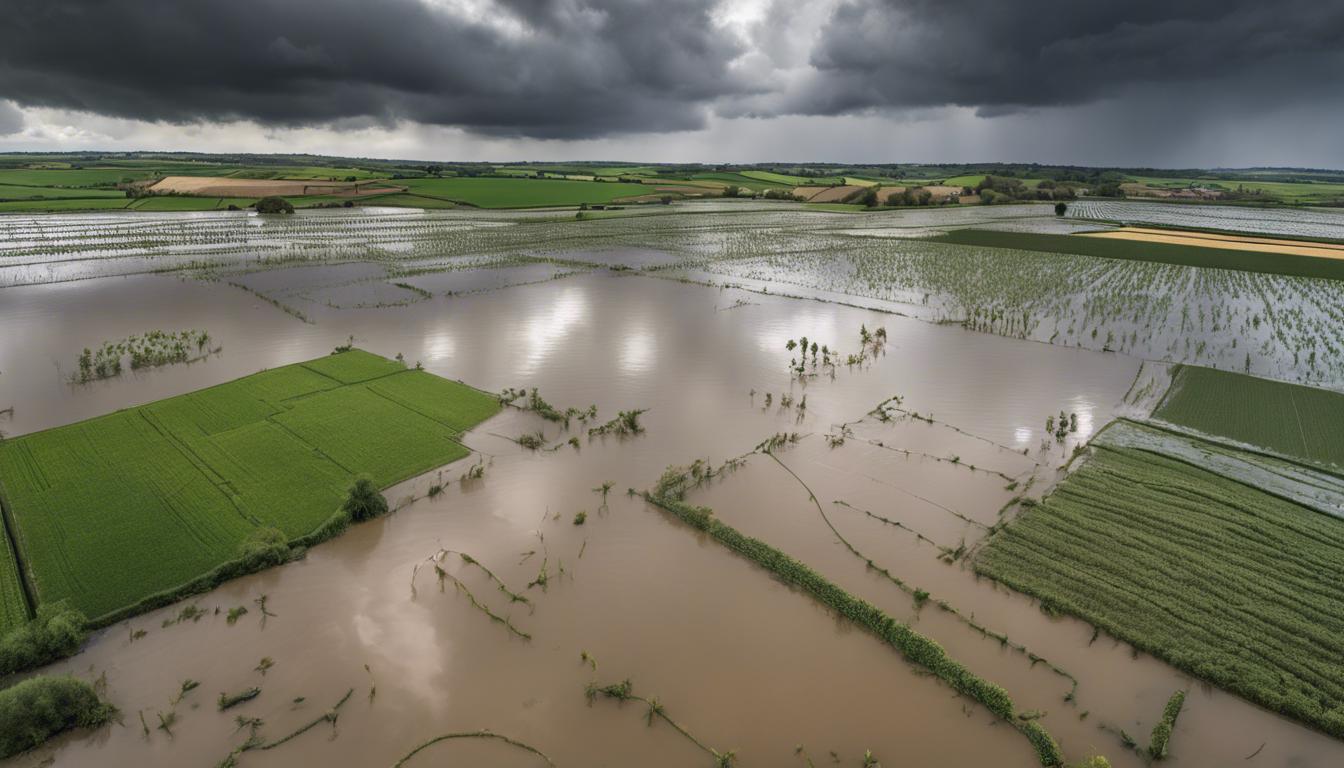Farmers in England confront devastating impacts from unprecedented rainfall, leading to significant financial losses and disruptions in the food supply chain, as the government amends the Farming Recovery Fund to provide necessary relief.
Farmers in England are experiencing significant losses due to record-breaking rainfall, which has resulted in submerged fields and crops left unplanted. The National Farmers’ Union Vice President, Rachel Hallos, and farmers like Joe Stanley from Leicestershire, who anticipates a £300,000 loss, have voiced urgent concerns over the devastation caused by the weather. The affected sectors include both crop and livestock farming, with a substantial impact on grass growth and fodder.
In response, the Department for Environment, Food and Rural Affairs (Defra) has made amendments to the Farming Recovery Fund, relaxing initial restrictions to widen eligibility beyond areas immediately adjacent to main rivers. The changes, influenced by significant issues highlighted by the National Farmers’ Union, aim to support farmers dealing with uninsurable losses from flooding. This assistance now offers grants between £500 and £25,000.
As England records its wettest 18-month period since 1836, the phenomenon is not only threatening food security by impairing crop planting and harvesting but also affecting supply chains and pricing, with supermarkets potentially looking abroad for alternatives to local produce.
Amidst these challenges, the UK wine industry is experiencing growth, benefitting from warmer temperatures which are advantageous for viticulture. The industry has seen a 74% increase in vine planting over five years and is projected to considerably expand its workforce by 2040. Notable investors including former Conservative Party treasurer Michael Spencer and international producers from the US and France are increasingly investing in British vineyards, reflecting a growing interest in this sector as a profitable venture.
Farmers and industry representatives are calling for more consistent governmental support and long-term strategies to address the impacts of climate change on agriculture, aiming to enhance resilience and sustainable practices in farming to secure future food supply and industry profitability.













